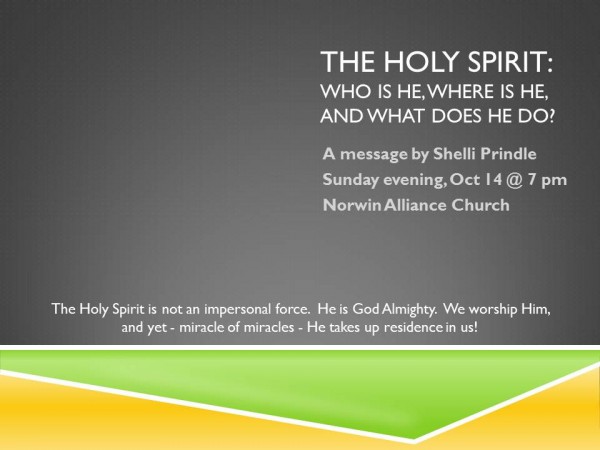“For he chose us in him before the creation of the world to be holy and blameless in his sight . . . In him we have redemption through his blood, the forgiveness of sins, . . .” – Ephesians 1:4, 7
Without citing any statistics, I make the observation that many people struggle with the issue of self-esteem. Throughout life, we meet many people who underachieve, fail to build solid relationships, and remain generally gloomy because they do not possess a solid basis for their own worth. Similarly, we sometimes encounter those among us who overcompensate for their missing sense of value by overachieving, pushing themselves on others, or touting their strong points in an unhealthy manner. No doubt self-esteem is a problem today, but the answer may not be what you think.
Self-esteem proves elusive, and so often just beyond our reach. Why? Precisely because self-esteem as a general psychological category is invalid if unrelated to God. A person who refuses to define self-esteem in the terms God establishes will not be able to harness a genuine sense of worth. He will tend to battle with his identity. She will not have a firm foundation for living and engaging the world.
Just what is the basis for healthy self-esteem? Let’s explore the following components:
1) You have been chosen by the One who really matters – by the only One who can provide meaning for your life. Ephesians 1:4 (NIV) proclaims, “For [God] chose us in him before the creation of the world . . .” Imagine, before the world was made, God had your life in His mind. Before He formed the mountains, carved out the seas, filled the sky with stars, created elephants or any other creatures; He chose you to be His own!
The world and circumstances do not give you meaning; the God who chose you before He made the universe gives you meaning. Your worth is not wrapped up in your ancestry, your career, your intelligence quotient, or your body type. Your value is defined by the Creator, who elected you to be part of His plan long before He ever fashioned human beings or breathed life into flesh.
2) You are chosen to be holy. DO NOT STOP READING HERE. Holiness is not a lackluster, religious term; it is the most exciting thing in the universe! Holiness is rooted in the concept of wholeness. We desire wholeness of body and mind, because to be whole means that something is – in fact – how it ought to be. Brokenness goes against our nature. Broken bones are bad. Broken relationships are bad. Broken hearts are bad. We long for wholeness because our God is holy. We long for Heaven because Heaven is the place where everything is right and whole.
God chose us to be holy. Ephesians 1:4 (NIV) goes on to declare, “He chose us in him before the creation of the world to be holy . . .” When we aim in life for anything other than holiness, we end up disheartened. When we stake our value on something other than God’s definition of our intent, we end up feeling lost. Our purpose is to be like God and to live for His intention – holiness.
Many people mistakenly aim for happiness as their general life goal. Genuine joy will never be ours if happiness is the main pursuit of our hearts. Happiness is a by-product of holiness. Joy follows a soul that is settled on its purpose – the pursuit of God. No matter how some may try to get around it, we were chosen to be holy.
The exciting thing is that every believer can be holy through Jesus Christ! Whether you are a website designer, a teacher, a waiter, a neurosurgeon, a homemaker, an accountant, a salesman, or a mailman; we all have access to the genuine basis of self-worth – holiness. The purpose of God for human life puts all professions, all talents, all IQ levels, all socioeconomic statuses, and all personality types on level ground. We come to God through Jesus and fulfill the reason for living – holiness. Praise God that no circumstance can hold you back from your purpose!
3) You receive from Jesus Christ all that is necessary to live out your purpose. Ephesians 1:7 (NIV) declares, “In [Jesus] we have redemption through his blood, the forgiveness of sins, in accordance with the riches of God’s grace.” The tricky thing about self-esteem is that I cannot earn my worth. Self-esteem would be better known as “Jesus-esteem.” All my value is wrapped up in the God who made me, forgave me, and enables me to be holy.
The root behind “redemption” is the notion of being bought back – being ransomed. Jesus’ death and resurrection paid for our release from sin. Not only am I forgiven, but sin no longer reigns over me. I am pronounced holy because Jesus bore the penalty of my sin. I begin the pursuit of personal holiness because Jesus defeated the power of sin on my behalf. The Holy Spirit living in me gives me what I need to be a conqueror of wrong!
4) Ironically, if you search for self-esteem by looking in yourself, it will evade you. If you focus on the greatness of God, you will find your worth. Your Creator said, “This is the one I esteem: he who is humble and contrite in spirit, and trembles at my word” (Isaiah 66:2, NIV). God Himself clearly esteems the person who is humble – the person who looks more at God than the self. Despite the world’s twisted thoughts, humility is the precursor of personal worth. God values the person who not only believes the Bible, but literally trembles at its truth. A human could have no more value than the esteem of God Almighty! Look to Him. Do not just consider the verses of Scripture included in this article as wise words of self-help; reckon them as the unfailing, living words of the Creator – able to change your life!
You ARE valuable . . . because of God. He chose you before the world was made that you might be holy. Through Jesus you have the power to live. Keep the eyes of your heart on the greatness of God. Consider His Word infinitely powerful. Talk to God now. Mention these verses to Him. Let Him give to you Jesus-esteem.







